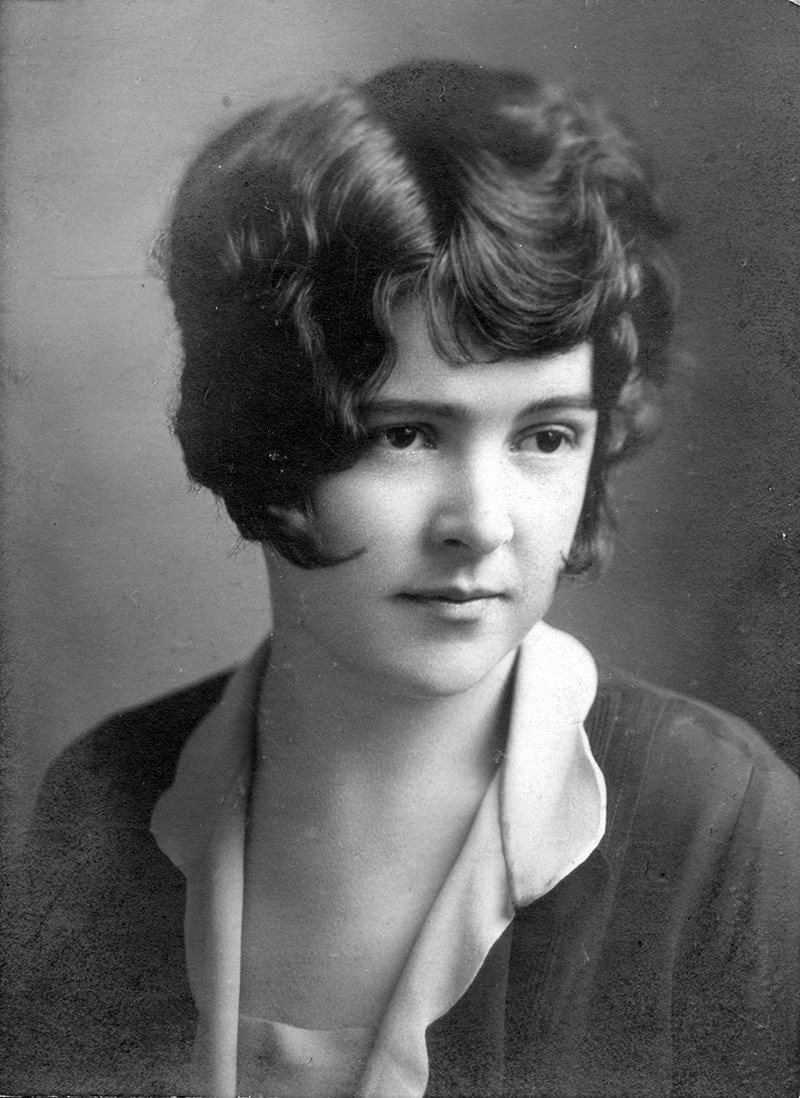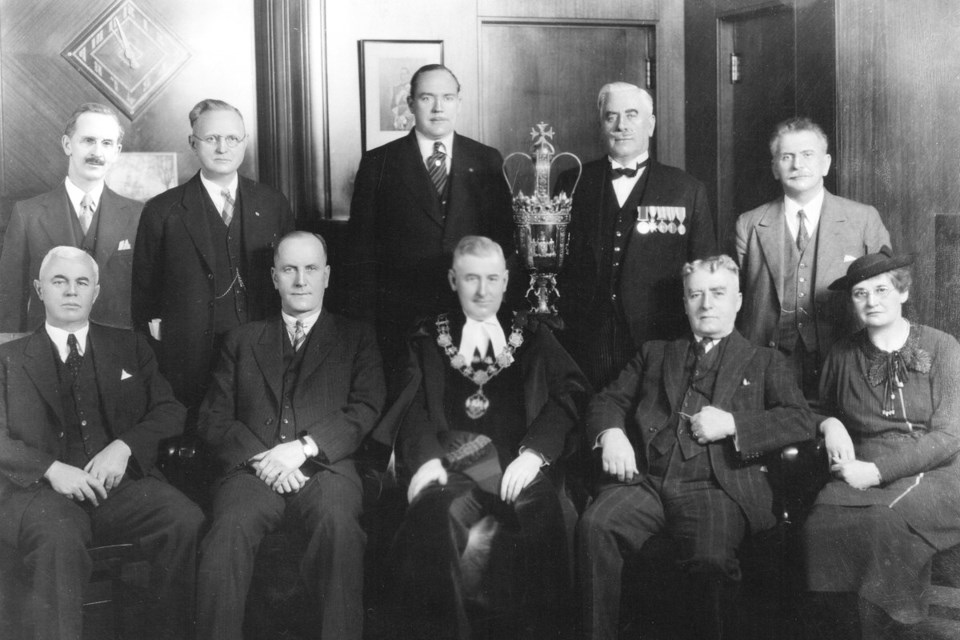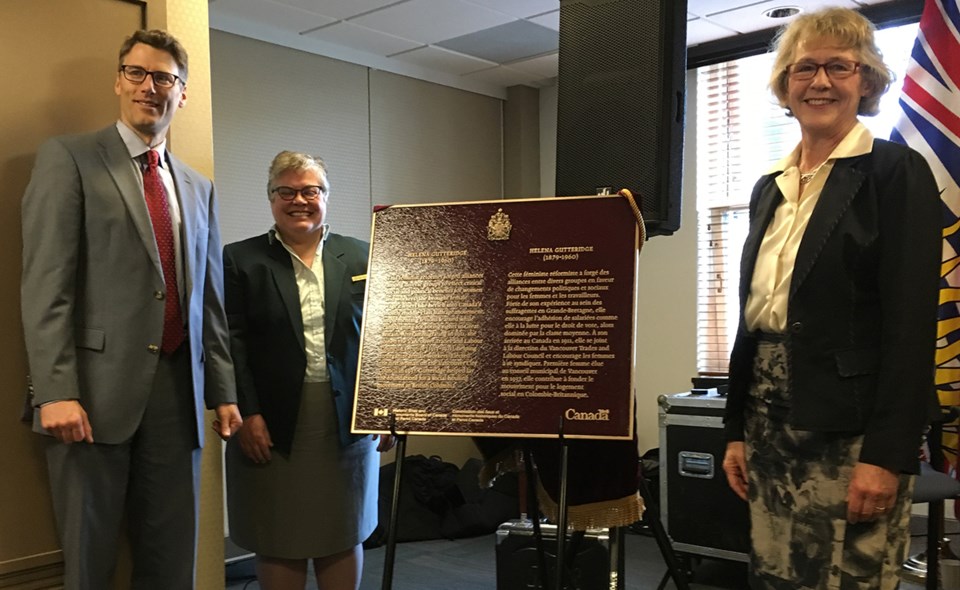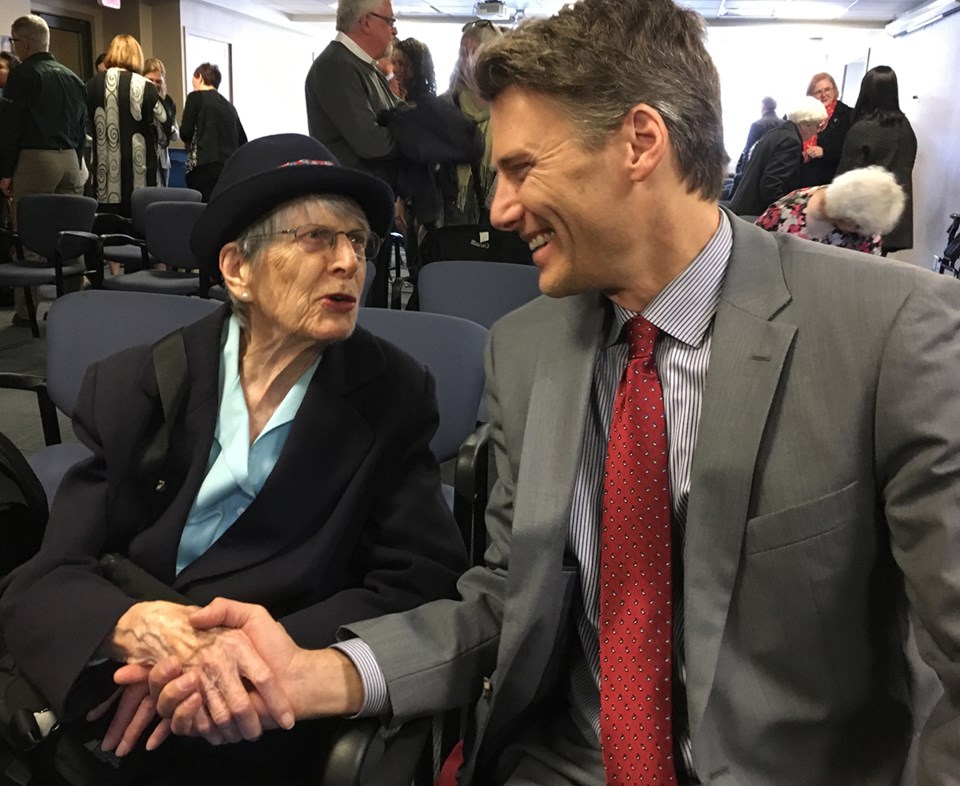As a garment worker in the 1910s, Helena Gutteridge was not welcomed into Vancouver’s labour movement because she was a woman. As a woman, she was not welcomed into the suffragette movement because she was a worker.
Her legacy is that she found ways to effect change in both movements and, in doing so, give voice to people whose basic rights were being ignored.
On Friday, Vancouver city councillors, local historians and members of labour organizations gathered to unveil a plaque that welcomed Gutteridge as Canada’s newest “person of national historical significance.”
Seventy years ago, Gutteridge was elected as Vancouver’s first female alderman. She used her seat on council to continue to advocate for the rights of the working class, particularly women and immigrants. She broke down barriers through sheer dint of willpower.
“It was her humanity — the thought that we can do better than this,” says Irene Howard, who never met Gutteridge but felt compelled to document her contributions to the province in her book The Struggle for Social Justice in British Columbia: Helena Gutteridge, the Unknown Reformer. It was Howard who asked Parks Canada, which oversees Canada’s historic plaque program, to honour Gutteridge.
“She was so forthright and energetic,” Howard says of what she learned to admire about Gutteridge’s commitment to social advocacy. “When she saw something that needed to be done, she rolled up her sleeves and did it. I admire the fact that she was so progressive. She looked at the slums and thought, ‘This shouldn’t be.’”

Born in England in 1879, Gutteridge first defied convention by getting an education, something her working-class parents didn’t think was necessary for a girl. She came to Vancouver on a visit and decided to stay, getting a job as a tailor and then becoming a executive member of the Vancouver Trades and Labour Council from 1913 to 1921.
In those days, the labour movement was angered by employers who cut costs by laying off men and replacing them with women, who earned 40 to 50 per cent less. However, rather than fight against women workers, Gutteridge argued that the problem would be solved if women’s wages were increased. In fighting for equitable pay, she helped set the stage for B.C.’s first minimum wage legislation.

The suffragettes who marched to give women the right to vote were primarily middle class, hosting afternoon teas to discuss strategies. A working woman did not have the luxury of afternoons off so Gutteridge encouraged suffragettes to hold meetings at night in neighbourhoods were the working class lived.
White women got the right to vote in 1917 but they had to be property owners, which disenfranchised women who lived in rental housing. Gutteridge continued to fight to ensure that everyone, regardless of class or race, had the right to vote.
“She shone a light on a largely overlooked group of women and the working class,” MP Joyce Murray said at the plaque dedication. Murray said as the great-granddaughter of one of the first women doctors, and a member of the Oregon suffragette movement in 1912, she felt a special kinship with Gutteridge.

Given the social structure of Vancouver in 1937, it’s surprising that Gutteridge got elected to council, woman or not. Power was centred in male domains such as the Board of Trade and Rotary Club, which were not known as beacons for the working class. But get elected she did and during her two years on Vancouver city council, she was a tireless advocate for the downtrodden.
When Japanese residents were placed in internment camps during the Second World War, Gutteridge went to work at the Slocan City camp as a social worker.
After the war she focused on the dire need for affordable housing in the city. She helped lay the groundwork for the Little Mountain social housing site.
She died in 1960.

Today, that site is the source of much frustration for city politicians and the Little Mountain neighbourhood.
In 2007, Holborn Group bought the large property with a plan to redevelop it with more than 200 social housing units and market value condominiums. The housing was torn down and, 10 years later, only 50 of the social housing units have been built. Zoning is in place but the developer has yet to put a shovel in the ground.
After the plaque unveiling, Mayor Gregor Robertson called the lack of action “painfully slow.”
“Helena would be rolling over in her grave if she knew how difficult this has been.”
Knowledge Network and the BC Labour Heritage Centre produced the video about Helena Gutteridge as part of their Working People series.



